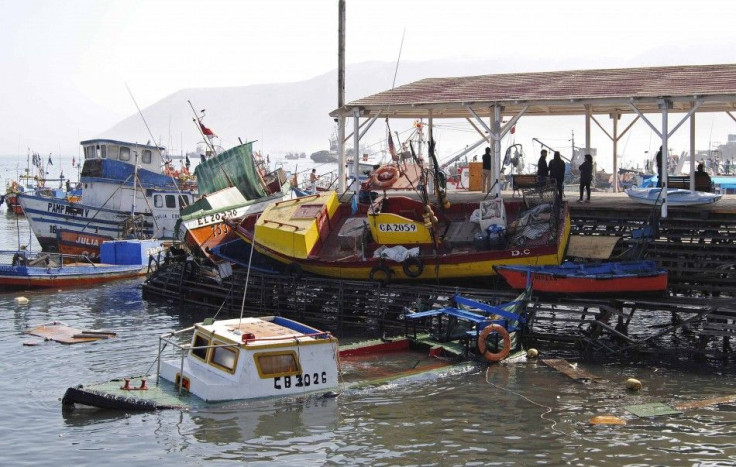Chile Earthquake: New Zealand Woman Rachel Lilburn Recalls Experience of 8.2 Magnitude Quake

A strong aftershock was felt in Chile with a magnitude of 7.6 on April 3 which caused buildings to shake and forced President Michelle Bachelet to evacuate her hotel room in Arica.
Rachel Lilburn, a New Zealander living in Chile, has experienced earthquakes before, but none were stronger than the 8.2 magnitude quake on April 2. The strong quake triggered landslides and a 2-metre tsunami. Some roads were blocked from the landslides as residents in coastal areas left their homes in fear of a tsunami.
Chilean President Michelle Bachelet had declared parts of northern Chila as disaster areas. According to reports, six people had died because of the strong quake.
Ms Lilburn has been living in Chile for five years with her Chilean partner and their children. She works as a freelance Web designer. Ms Lilburn heard the tsunami sirens blaring outside their home in the coastal region of Antofogasta. Residents had evacuated their homes and sought higher ground.
The quake struck Chile around 8:45 pm, local time. Ms Lilburn was at home with her partner and the children were already sleeping when she felt the ground shook. She was on the second floor of their house and felt the strong quake. However, she said her Chilean partner had not felt anything, while her children slept through the sound of the sirens.
News agencies in Chile had urged people to go to safe zones that are beyond the reach of tsunamis. Ms Lilburn's house is above the safe zone so she remained with her children while her partner went out to check his parents' apartment.
Her family in New Zealand had been communication with through emails and Facebook.
According to statistics, 192 New Zealand nationals are registered in Chile. New Zealand's Minister of Foreign Affairs has yet to determine the number of affected Kiwis in Chile.
The 8.2 magnitude quake's epicentre was 99km northwest of Iquique, Chile, at 10 kilometres deep. It is also the same area where a number of earthquakes had been felt the last week. According to authorities, the tremor was felt in the capital of Bolivia about 470 km away. The tremor registered at 4.5 magnitude.
Meanwhile, New Zealand officials believed the country is not at risk despite the tsunami information bulletin issued by the Pacific Tsunami Warning Centre. The Civil Defence said the tsunami warning did not put New Zealand at risk.
However, seismologist Lara Bland said people near the coast should remain vigilant despite the small chances of a destructive tsunami hitting the island-nation.





















